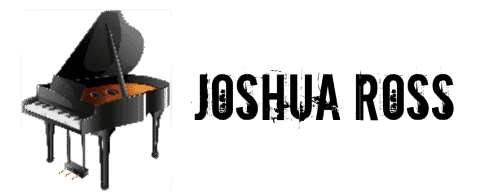As an Amazon Associate I earn from qualifying purchases.
Pianos are one of the most popular musical instruments in the world. They are known for their beautiful sound and versatility but can also be incredibly loud. The volume of a piano can be an issue for many people, especially those who live in apartments or have neighbors who are sensitive to noise.
So why are pianos so loud?
Pianos have a large soundboard that amplifies the strings’ vibrations, creating a rich and powerful sound. Another factor contributing to a piano’s volume is how much force is used when it is played. Voicing of the hammers and poor maintenance can also contribute to a loud-sounding instrument.
A skilled pianist can produce various dynamics, from soft and gentle to loud and powerful. However, playing the piano too loudly can be problematic, especially for noise-sensitive people.
Want to Learn Piano?Click Here
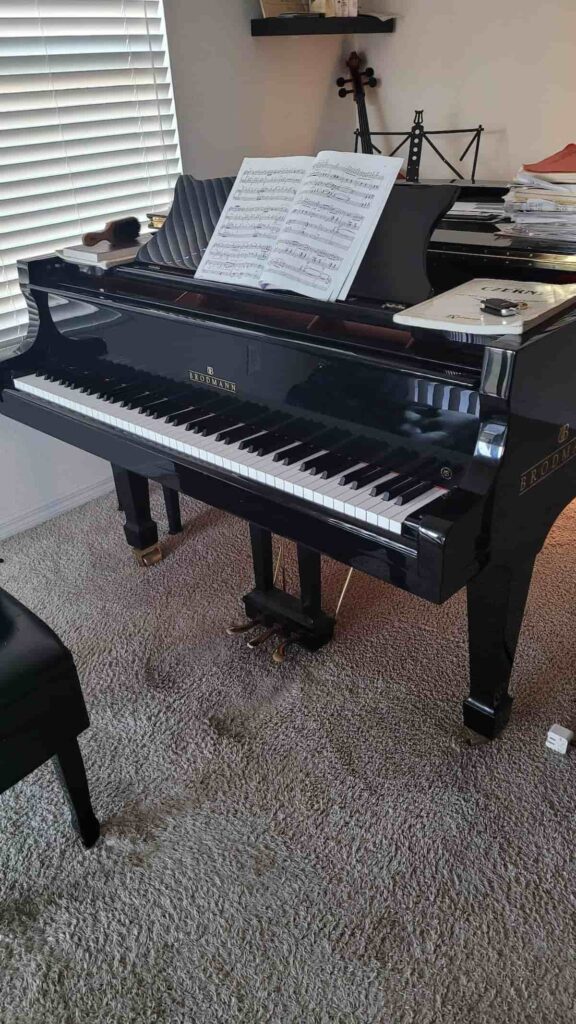
The Role Of The Pianist In Producing Loud Sound
While the piano is designed to produce sound, the pianist plays a crucial role in producing a loud sound. Here are some factors that contribute to the pianist’s ability to produce loud sounds:
Playing technique
The way a pianist strikes the keys affects the volume of the sound produced. If a pianist strikes the keys harder, the hammer strikes the string quickly, resulting in a louder sound. Conversely, if a pianist strikes the keys softly, the hammer will strike the string slowly, making a soft sound.
If you’re new to the piano, you may have trouble controlling your technique and achieving the softer tone you’re after. No worries, though; with more practice, you’ll understand which technique works for you (hint, the slower attack usually means softer tones!).
Body posture and positioning
The pianist’s posture and positioning can also affect their ability to produce a loud sound. A pianist who sits up straight with their arms and wrists positioned correctly will have more control over the keys, allowing them to play with more force and produce a louder sound.
On the contrary, if you’re slouched over, sitting too closely (or too far back), then those sorts of things can inhibit your ability to control the sound. Also, playing too vertically rather than using the keyboard as a plane can almost guarantee your sound will be overwhelming.
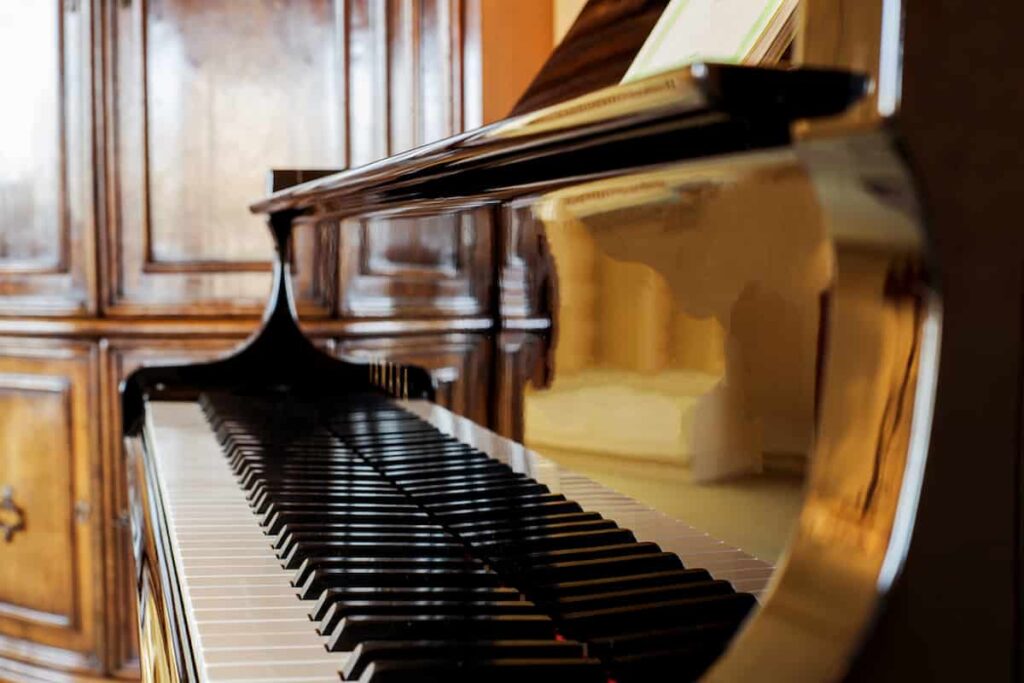
Practice and training
A pianist’s ability to produce loud sound is also influenced by their level of training and practice. Experienced pianists have developed the skills and techniques to produce loud sounds without sacrificing control or accuracy.
In a nutshell, if you take lessons, tone quality is one of the main components you will learn. How to attack the key, which angle to come from, and much more. Much of the proper technique is standard, but everyone is different.
Outside of the lessons, if you don’t practice regularly, your muscles won’t know what it feels like to generate gentle sounds. And, the fact that you think about which notes to play next might take your attention away from the quality of sound you’re producing.
How The Piano Produces Loud Tones
Pianos create their loud sound primarily based on how you play them. But, the way a piano is designed also plays a significant factor.
Physics
The physics behind how pianos produce loud tones is quite simple. When pressed, a key activates a mechanism that causes a hammer to strike a string. The string vibrates and produces sound waves, amplified by the piano’s soundboard.
The harder the hammer strikes the string, the louder the sound will be.
The Soundboard
The soundboard is a large wooden board that amplifies the sound produced by the strings. The strings’ vibrations are transmitted to the soundboard through the bridges, and a loud sound resonates due to the soundboard vibrating the air.
The larger the soundboard, the more sound it can produce. Grand pianos have larger soundboards than upright pianos, so they are generally louder.
Pedaling
Pedaling is another factor that contributes to the loudness of a piano. When the damper pedal is pressed, it lifts all the dampers off the strings, allowing them to vibrate freely. This results in a fuller, more resonant sound.
The sustain pedal also contributes to the loudness of a piano by allowing the notes to ring out longer, creating a more sustained sound. Some pedals do the opposite, causing the hammers to strike fewer keys (more on this in a bit).
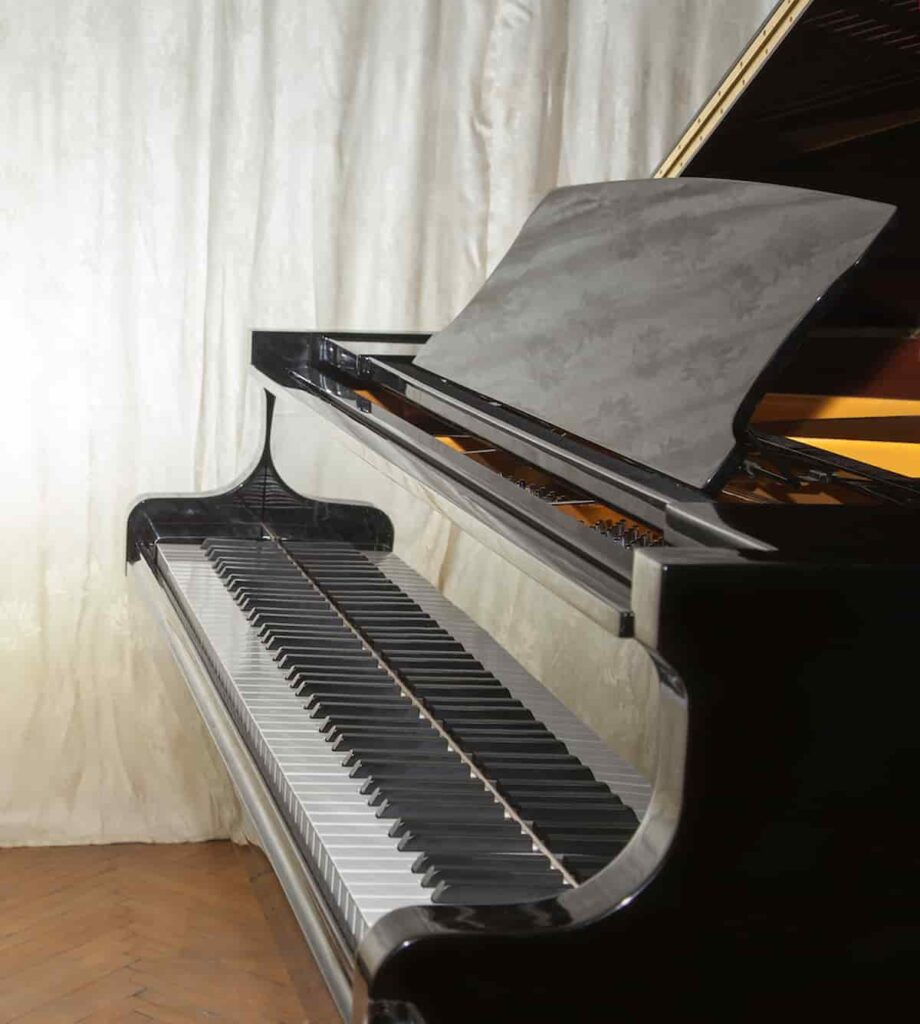
Playing Technique
The way a pianist plays also affects the loudness of the piano. Playing with more force and intensity will result in a louder sound while playing softly will produce a softer sound. The speed at which the keys are pressed can also affect the sound volume.
Generally speaking, a faster attack means a louder sound.
Factors that Affect Loudness
In addition to the mechanism of the piano producing loud sounds, sometimes the quality of the instrument and outside factors contribute to its loudness.
Size and Shape of the Piano
The size and shape of a piano can greatly affect its loudness. A larger piano with a longer soundboard and larger strings will generally produce a louder sound than a smaller piano. The shape of the piano can also play a role in the loudness, with some shapes allowing for better sound projection and resonance.
As a whole, grand pianos will be louder than upright pianos (if properly voiced).
Materials Used
The materials used in constructing a piano can also affect its loudness. The quality of the wood used for the soundboard, bridges, and ribs can impact the sound produced. The thickness and density of the soundboard can also play a role in the loudness of the piano.
There’s a ton of variance here. Cheaper pianos from lesser-known brands tend to have less control. That, combined with poorly sourced materials, means these instruments may always sound loud regardless of what you do.
Playing With An Open Lid
Playing the piano with an open lid can significantly increase its loudness. This is because the sound waves produced by the strings are able to escape more freely and resonate within the room. However, playing with an open lid can also alter the tone and balance of the sound produced.
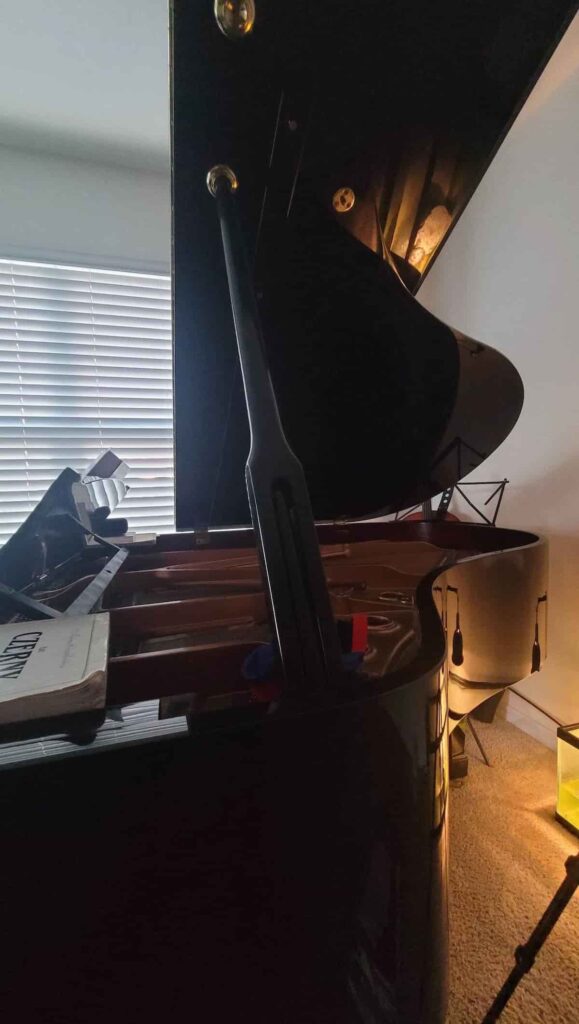
Room Acoustics
The room’s acoustics in which a piano is played can also affect its loudness. A room with high ceilings and hard surfaces like tile will generally produce a louder sound than a smaller room with soft surfaces.
Rooms that are heavily carpeted or have soundproofing in the walls may dull out the sound of the piano (that’s a problem too). Most pianists, especially professionals with fine-tuned ears, desire a balance between the two.
The position of the piano within the room can also impact the sound produced, with some positions allowing for better sound projection and resonance. For example, if your lid faces a wall, the sound may bounce off it. Perception is everything when it comes to the piano’s overall sound level.
Reducing The Loudness Of Your Piano
Assuming you have a loud instrument, you’re looking for solutions to quiet it down. And yes, there are plenty of ways you can do that.
Use A Rug
Placing a rug underneath your piano can help reduce the sound it produces. The rug will absorb some sound waves and prevent them from bouncing off hard surfaces and amplifying the sound. Make sure the rug is thick and heavy enough to provide adequate sound insulation.
Use The Soft Pedal
The soft pedal, also known as the una corda pedal, is on the piano’s left side. When pressed, it shifts the hammers slightly to one side, causing them to hit fewer strings and produce a softer sound. This is an effective way to reduce your piano’s volume without compromising the sound’s quality.
Close The Lid
Closing the lid of your piano can also help reduce the sound it produces. The lid acts as a soundboard, amplifying the sound and making it louder. By closing the lid, you can prevent some of the sound waves from escaping and reduce the overall volume of your piano.
I know many pianists don’t like closing the lid, myself included, because it changes the tone. However, it’s the first step in reducing the sound significantly.
Use Sound Absorption Panels
Sound absorption panels are designed to absorb sound waves and prevent them from reflecting off hard surfaces. You can purchase these panels and hang them on the walls near your piano to help reduce the sound it produces. They come in various sizes and shapes; you can choose the ones that best fit your room and decor.
Get Your Instrument Voiced By A Technician
If your piano is still too loud even after trying the above methods, consider getting it voiced by a technician. Voicing involves adjusting the hammers and strings to produce a softer or brighter sound. A technician can also check if any damaged or worn-out parts may be contributing to the loudness of your piano.
Hello & thanks for stopping by! I’m a professional concert pianist and piano instructor. In the United States, I’ve given successful performances in several places including New York, Florida, Connecticut, & New Jersey, I have also performed internationally in Italy and made my Carnegie Hall debut in 2014. I enjoy blogging about the piano, the art of performance, general music, current events and the latest in music production.
